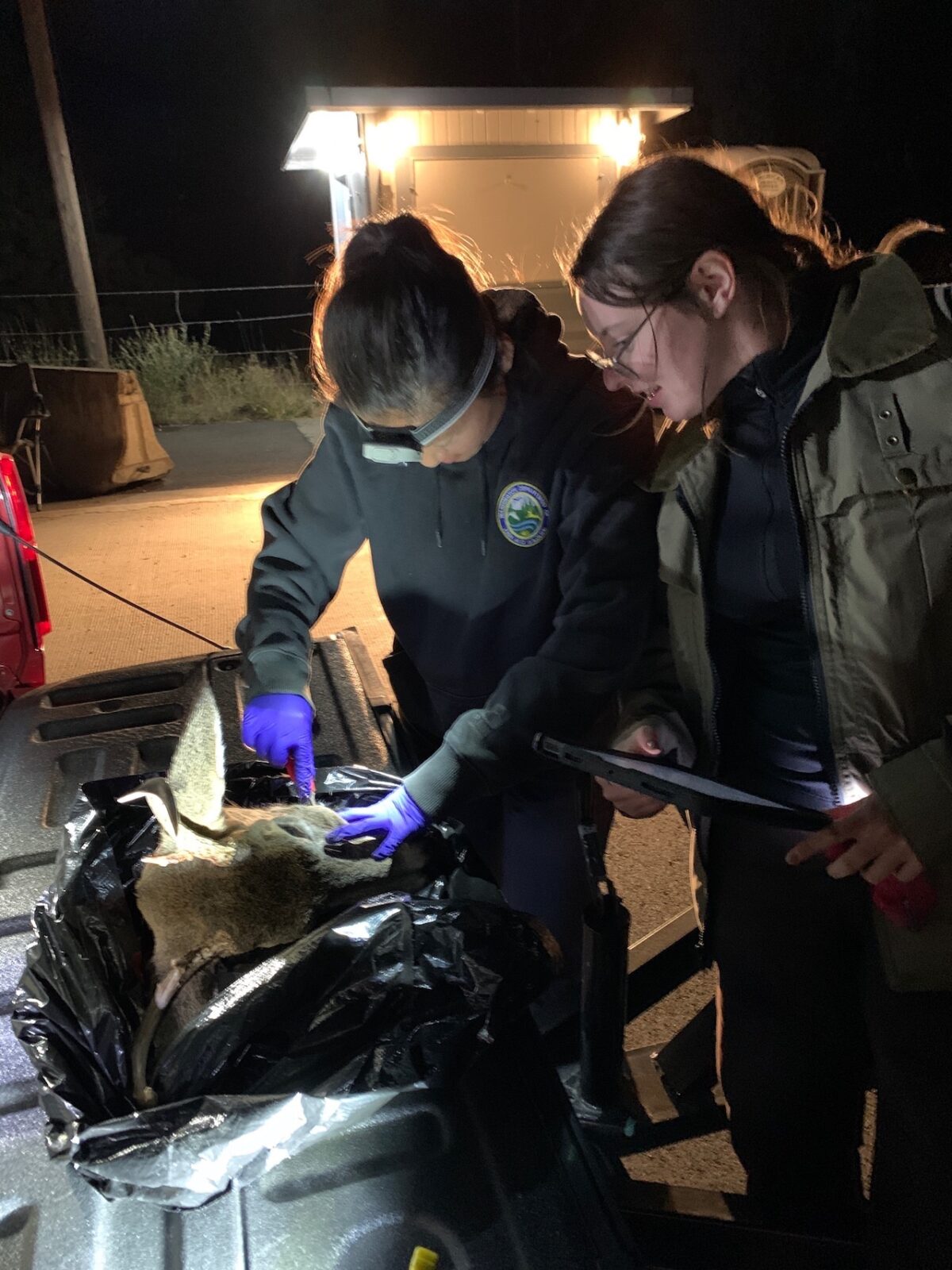
2nd Case Of CWD In WA Deer; Buck Taken By Hunter Near First Case
Washington’s second confirmed case of chronic wasting disease is being reported this afternoon by WDFW, this time in a whitetail buck taken by a hunter on opening weekend of October’s rifle season.

The deer was killed not far from where the state’s first case of the always-fatal deer family disease turned up in Spokane County earlier this year.
“Given the location where this deer was harvested – just north of the initial CWD detection, approximately five miles north and west of Highway 395 – this positive test result is not a complete surprise,” said Donny Martorello, chief of WDFW’s Wildlife Science Division.
The hunter took the head of the buck to WDFW’s Spokane office, where a biologist removed lymph nodes and submitted them to the Washington Animal Disease Diagnostic Laboratory at Washington State University for testing on October 16. Word came back to the agency about the positive result this week.
State wildlife managers have been ramping up their testing efforts since CWD was confirmed in neighboring Idaho in 2021, and with this summer’s confirmation in a dead whitetail doe in the Fairwood neighborhood north of Spokane, they also instituted mandatory requirements for all deer, elk and moose taken in Game Management Unit 124 – where that first case occurred – and neighboring GMUs 127 and 130, Mica Peak and Cheney, along with new carcass transportation rules for 100-series units in far Eastern Washington, among other changes.
WDFW acknowledges it’s possible there may be more CWD deer out there and they will be collecting samples at game checks this weekend as the late Northeast whitetail hunt continues. Samples can also be dropped off at collection stations, an appointment can be made for testing, or hunters can dig the lymph nodes out and submit them by mail – details on all that here.
After hunting seasons wrap up, the focus of surveillance will shift to roadkilled deer and animals that happen to die in people’s yards.
The hope is that early detection and widespread testing can help contain or at least slow the disease from spreading further into Washington, and hunters are a key part of that effort. Kudos to the hunter who followed the requirements and had their animal tested.
New research suggests that CWD may not be transmissible to people, but the standing advice is to not eat the meat of an infected animal and to take precautions while processing any that you kill.
